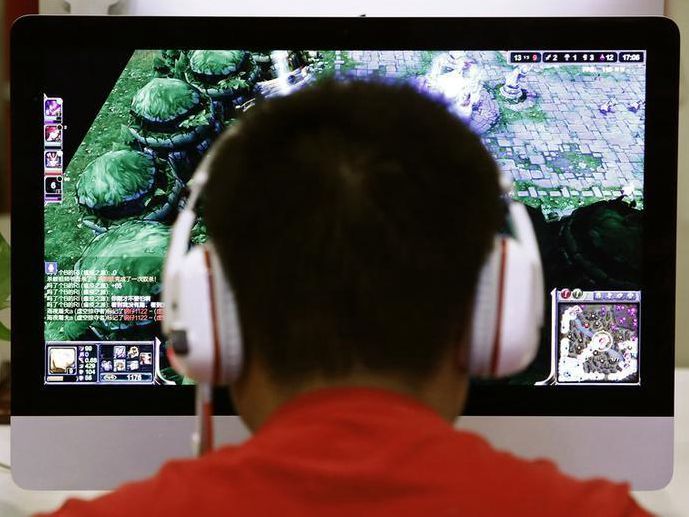
A man plays a computer game at an internet cafe in Beijing May 9, 2014. Photo: Reuters
China is reinforcing its censorship of the internet with a campaign to crack down on unauthorized connections, including virtual private network (VPN) services that allow users to bypass restrictions known as the Great Firewall.
The Ministry of Industry and Information Technology said in a notice on its website on Sunday that it is launching a nationwide clean-up campaign aimed at internet service provider (ISP), internet data center (IDC), and content delivery network (CDN) companies.
The “clean-up” of the nation’s internet connections would start immediately and run until March 31, 2018, the notice said. It ordered checks for companies operating without government licenses or beyond the scope of licenses.
Without approval, all basic telecommunication companies and Internet access service providers are barred from setting up or renting special lines (including VPNs) to carry out cross-border operations, according to the notice.
According to some experts, the regulation is necessary for the authorities to strike against cross-border crimes and purifying cyber space, while some multinational companies in China such as Microsoft Corp have reasonable need to communicate with their headquarters overseas via VPNs.
The new policy provides rules for providers to follow when offering services. Every communication bureau should investigate the service providers in its region to eradicate illegal operations, according to the notice.
China has the world's largest population of internet users - now at 731 million people - and is home to some of the biggest internet firms such as Tencent Holdings, Baidu Inc and Alibaba Group Holding.
China blocks access to 135 out of 1,000 sites in one ranking of the world’s top websites, including Google, Facebook, Twitter and YouTube, according to Greatfire.org, which monitors online censorship on the mainland. As a result, many internet users on the mainland rely on VPN services to access blocked sites and services.
The last major crackdown on VPNs was in March 2016 during the National People’s Congress meeting in Beijing. Many companies complained that their paid-for VPN services were not functioning for up to a week.
| Touched | Sympathetic | Bored | Angry | Amused | Sad | Happy | No comment |